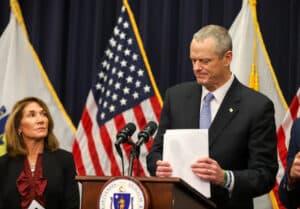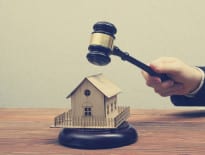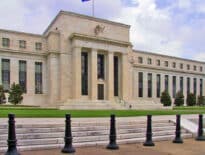
Gov. Charlie Baker announced a wide-ranging series of COVID-19 emergency orders in a Sunday evening March 15, 2020 news conference, including school closures, a ban on most gatherings of 25 people or more, and prohibition of on-premises food or drink consumption in restaurants and bars. Photo by Sam Doran | State House News Service
In a dramatic escalation of the state’s response to the spreading coronavirus outbreak, Gov. Charlie Baker on Sunday announced that all Massachusetts public schools must soon close for three weeks, most events with 25 or more people are now banned, restaurants are limited to takeout-only service and visitors are barred from the state’s nursing homes and assisted living facilities.
New responses unveiled Sunday also include a mandate that all restaurants and bars transition to takeout-only to prevent crowds, a requirement that commercial health insurers cover telemedicine, and steps aimed at making unemployment aid more easily accessible.
The sweeping announcements came hours after the total number of identified COVID-19 cases in Massachusetts hit 164 and as Public Health Commissioner Monica Bharel announced that community-level transmission — where investigators cannot trace an individual case back to a source — is now occurring in seven counties.
“I realize these measures are unprecedented, but we’re asking our residents to take a deep breath and understand the rationale behind this guidance,” Baker said, stressing the response could save lives, enable the health care sector to avoid an unmanageable surge, and limit the already rapid spread of the illness.
Public and private K-12 schools will be allowed to return Monday, but starting Tuesday, they must suspend all educational operations until April 7. Baker urged staff to plan for how to provide alternative and remote learning resources equitably to all students during the shutdown.
Baker had resisted ordering a statewide educational shutdown for several days, even as many districts implemented their own weeks-long suspensions and governors in other states implemented similar policies.
“The facts on the ground have changed,” Baker said Sunday. “At this point in time, it’s particularly appropriate that we not only move on the school closures, but also that we get a lot more aggressive around other places and spaces that people gather.”
Unemployment Benefits Boosted
Baker’s directive also forbids on-premises consumption of food or drink, effectively requiring all restaurants and bars to transition to takeout-only from its March 17 effective date until at least April 5.
The order banning large gatherings does not apply to normal operations at grocery or retail businesses.
Boston Mayor Marty Walsh had earlier on Sunday ordered restaurants, bars and clubs to limit their capacity to 50 percent and to close early, prompted in part by reports of large crowds at South Boston establishments over the weekend. Baker’s order supersedes the mayor’s instructions.
Baker said he would file emergency legislation on Monday that waives the one-week waiting period for unemployment benefits and expanding eligibility, aiming to allow “many of the workers affected by closures to get some financial relief faster.”
According to the governor’s office, the Executive Office of Labor and Workforce Development will also file emergency regulations allowing employees affected by the coronavirus to collect unemployment if their workplace shuts down with plans to reopen within four weeks.
Five Times the Cases of Last Week
Massachusetts has 164 identified coronavirus cases as of Sunday, a more than fivefold increase over the total cases one week ago.
Three commercial laboratories — Thermo Fischer, Quest Diagnostics and LabCorp — have received federal approval to conduct COVID-19 tests, supplementing the roughly 400 tests per day the state’s public health laboratory will soon be able to conduct.
At least 969 tests have been done so far between the state lab and private labs, Bharel said. The governor warned this morning that he expects the numbers of total cases to rise significantly as more tests are conducted.
While the majority of cases trace back to a late February meeting of Biogen employees in Boston, community spread is becoming more common. The state’s public health commissioner said Berkshire, Essex, Hampden, Middlesex, Norfork, Suffolk and Worcester Counties all have evidence of community-level transmission as of Sunday.
“This is an evolving situation,” Bharel said. “Social distancing is our collective opportunity to influence the course of this illness and flatten the curve. Each of us needs to do our part.”
As of Monday, all commercial health insurance carriers and the Group Insurance Commission will be required to cover all medically necessary telehealth services — treatment offered by doctors over the phone or a video conference — and pay the same rates as in-person care. They are also prohibited from requiring cost-sharing or prior authorization for any COVID-19 telehealth treatment.
“Telemedicine is one of the most important things we need to divert care from hospitals and ambulatory sites from patients,” said Marylou Sudders, who stepped aside from her usual duties running the health and human services secretariat to lead the state’s coronavirus command center. “By enabling patients to remain at home, rapid treatment delivery can be provided, we can adhere to social distancing protocols, we can optimize efficiency and conserve resources.”
The public health orders also authorize certain pharmacies to create their own hand sanitizer and sell it over the counter to supplement stockpiles.






